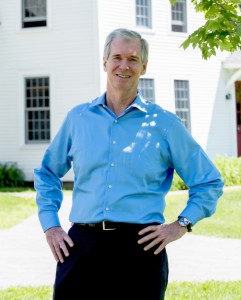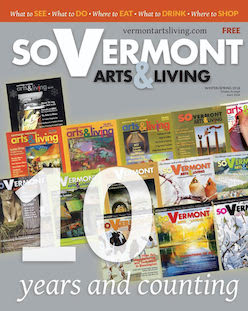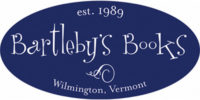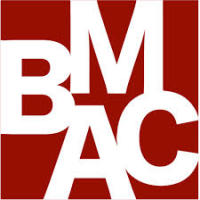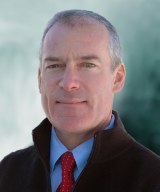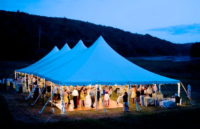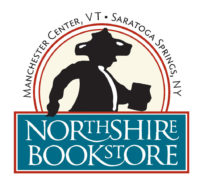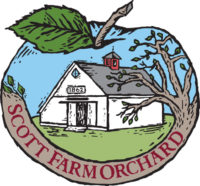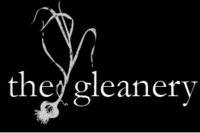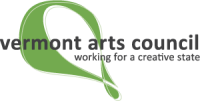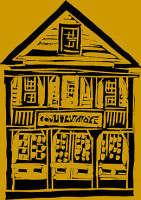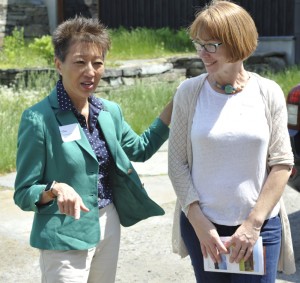
Sara Coffey meeting in 2016 with Jane Chu, chair of the National Endowment for the Arts. Right: Kevin Quigley.
By Kevin F. F. Quigley and Sara Coffey
Sadly, the arts and cultural sectors are no strangers to budget cuts. They’ve endured a number of Republican-led efforts to reduce arts funding since the 1990s, and, in keeping with this tradition, President Trump’s budget blueprint, released in March, proposes significant cuts to virtually every agency except the departments of defense, homeland security, and veterans affairs.
It also would eliminate funding for the National Endowment of the Arts in FY18.
In the face of these drastic cuts, a real solution to supporting artists and keeping the arts vital in our communities is to develop new models of partnership that link higher education, artist residencies, and communities.
Vermont Performance Lab (VPL) is a nonprofit arts organization that supports the arts and Vermont’s rural communities through artist residencies linking artists’ creative research and community engagement. Through a decade-long partnership, Marlboro College and VPL have been evolving a new model of partnership that links artist research with undergraduate faculty and students, and with members of our rural communities.
A recent project explored the radical movements of the late 20th century. An undergraduate course involving Green Mountain Crossroads, a local LGBTQ organization, was co-imagined by theater artist Ain Gordon, American Studies faculty member Kate Ratcliff, and Theater faculty member Brenda Foley. This innovative model of partnership allows faculty and students to get out of the studio or classroom and into our communities for work that tackles important social issues and collaborative research.
Our work together has involved workshops and community forums, and our artist residencies have culminated in published papers, a community oral history project, and student exhibitions and performances, as well as professionally produced works of theater and dance.
Most importantly, this work goes beyond traditional master classes and performances to engage participants in the local community. Our collaborative model of socially engaged practice nurtures stronger, healthier communities while fostering an informed, engaged generation of cultural workers and producing great works of art.
Partnering in this way also helps precious resources go further and enhances our institutions by offering students access to influential artists and community organizations working on a range of topics in ways that enhance their learning and preparation for the future.
While funding for the arts is sometimes seen as frivolous, and only to be supported when financial times are great, this is shortsighted considering that the arts strengthen the economy. For example, with only a $148 million annual budget, NEA investments in the arts help contribute to a $730 billion arts and culture economic industry—including 4.2 percent of the annual GDP and 4.8 million jobs that yield a $26 billion trade surplus for the country.
Furthermore, the arts are fundamental to our humanity—they contribute to individual well-being, unify communities, improve academic performance in students, and spark creativity and innovation. Art transforms civic participation and further calls to each of us in ways that inspires individuals to do great things. Artists speak clearly to what our society values and to the health of our democracy.
In these challenging times for the arts and communities, we can best bolster support for the arts that strengthen our communities by developing vital partnerships among arts organizations, educational institutions, and community groups.
Kevin F. F. Quigley is the ninth president of Marlboro College, a small liberal arts college in Vermont, which he has guided since 2015. Before coming to Marlboro, Kevin served in several international development organizations, most recently as Peace Corps country director in Thailand and president and CEO of the National Peace Corps Association (NPCA). He has degrees from Swarthmore College, National University of Ireland, Columbia University, and Georgetown University, and was a Woodrow Wilson Visiting Fellow at 12 liberal arts colleges from 2004 to 2012.
Sara Coffey is the founder and director of Vermont Performance Lab, an artist residency center that is a laboratory for creative research and community engagement. Sara has been working in the performing arts field as a manager, programmer, producer, and fundraiser in NYC and Vermont for more than 25 years.


